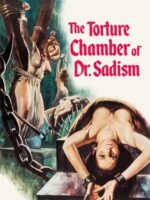Beyond the Chains: Exploring the Cinematic Torture Chamber
Isn't it fascinating how certain images burrow themselves into our collective consciousness? The torture chamber – a space of dread, suffering, and often, political commentary – is one such image. It’s more than just chains and racks; it represents the breakdown of humanity, the abuse of power, and the desperate fight for survival. And cinema has consistently returned to this dark corner of the human experience, albeit in wildly different ways.
We don't always think of "torture" as purely physical. Jim’s Room, for example, presents a chillingly modern take on it. The psychological torment Jim endures – being filmed and manipulated by his captor – is arguably more devastating than any medieval rack could be. It speaks to our anxieties about surveillance, exploitation, and the erosion of privacy in the digital age. It’s a stark reminder that confinement isn't always about physical walls; it can be a prison of the mind.
Then you have films like Horror Castle and Bloody Pit of Horror, which lean into the more visceral aspects. These are often rooted in exploitation cinema, drawing on our primal fears and offering a spectacle – albeit a disturbing one. While I wouldn't necessarily call them "good" in a traditional sense (they can be… rough around the edges!), they’re undeniably fascinating studies of how audiences have historically engaged with depictions of suffering. I remember seeing Bloody Pit of Horror as a teenager and being utterly horrified, but also strangely compelled by its sheer audacity – it's a product of its time, reflecting a certain kind of sensationalism that feels almost quaint now.
But the torture chamber isn’t always about individual horror. Kill Pinochet, for instance, uses the imagery of confinement and oppression to represent the broader struggle against political tyranny. The physical spaces might be prisons or interrogation rooms, but they symbolize the limitations placed on freedom and dissent. It's a powerful reminder that real-world torture has been – and continues to be – a tool used by regimes to silence opposition.
Even She, with its fantastical elements, touches upon this theme. The "torture" inflicted isn’t always physical; it’s psychological manipulation, imprisonment within bizarre scenarios, and the constant threat of violence. It's a chaotic, over-the-top exploration of power dynamics and the lengths to which those in control will go to maintain their grip.
Ultimately, the cinematic torture chamber is a mirror reflecting our deepest fears and anxieties about power, control, and the fragility of human dignity. Whether it’s a literal dungeon or a metaphorical prison, these spaces force us to confront uncomfortable truths about ourselves and the world around us.
What films do you think best explore this theme? I'd love to hear your thoughts!





































